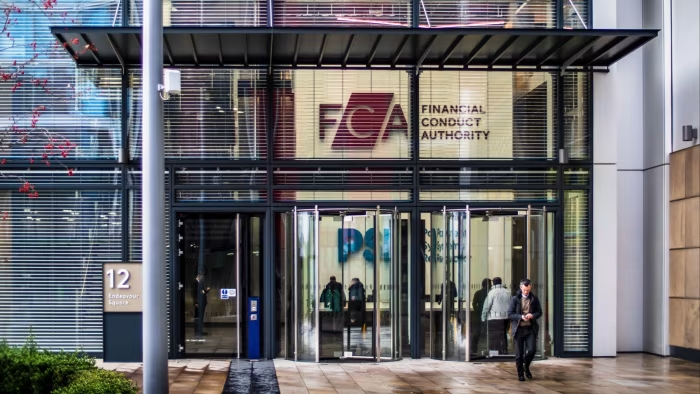FCA Proposes Key Protections for BNPL Borrowers Ahead of 2026 Regulation
- Jul 21, 2025
- 4 min read
Buy Now Pay Later (BNPL) users are set to gain access to the same protections afforded to traditional borrowers, under new proposals unveiled by the Financial Conduct Authority (FCA). The proposed rules will require lenders to assess whether borrowers can afford to repay their BNPL loans and to provide appropriate support if they encounter financial hardship. These protections will apply when BNPL products come under the FCA’s regulatory jurisdiction in 2026, forming part of the regulator’s broader mission to support consumers in navigating their financial lives.

Borrowers will also have the right to escalate complaints to the Financial Ombudsman Service if issues arise, extending an important avenue for redress that is currently unavailable under unregulated BNPL arrangements. According to Sarah Pritchard, deputy chief executive at the FCA, “We have long called for BNPL products to be brought into our remit, so people can benefit from BNPL while being protected. Our regulation will help consumers navigate their financial lives, with checks on whether they can afford to repay, support when things go wrong and access to the right information to make informed decisions.”
Pritchard further emphasized that the FCA’s approach is not about reinventing the wheel, but about extending existing consumer protections: “We’re mainly relying on existing requirements, including the Consumer Duty, rather than proposing to make lots of new rules, supporting growth and allowing firms to innovate.”
BNPL usage has seen a notable rise in the UK. Research conducted by the FCA found that as of May 2024, one in five UK adults—equivalent to 10.9 million people—had used an unregulated BNPL product at least once in the previous 12 months. This marks an increase from 17%, or 8.8 million people, in 2022. While BNPL can offer consumers access to affordable credit and a convenient method to spread the cost of purchases, the FCA cautions that the products carry risks similar to other forms of lending, including the potential for harm if used irresponsibly.
To facilitate the transition, the FCA will introduce a temporary permissions regime, allowing BNPL providers to continue operating while they seek full regulatory authorisation. This regime is scheduled to come into effect on 15 July 2026, with a two-month registration period preceding its launch. Once the regime begins, firms will have a six-month window to submit their applications for full FCA authorisation. The FCA has opened a consultation to gather feedback on its proposals from BNPL lenders, consumer advocates, industry stakeholders, and the public. Responses will be accepted until 26 September 2025.
The FCA clarified that while some BNPL-style agreements are already regulated, the current proposals apply specifically to unregulated deferred payment credit (DPC), which is often marketed as BNPL. DPC products are interest-free credit agreements used to finance purchases of goods or services, typically repayable in 12 or fewer instalments within a one-year period. The UK Government has already legislated to bring these DPC products under FCA oversight.
An FCA Occasional Paper on DPC users revealed that these borrowers tend to be younger, carry lower creditworthiness scores, and face higher levels of unsecured debt compared to the broader UK population. They are also nearly twice as likely to be in serious financial distress. However, the FCA noted that its research did not consistently find that DPC borrowing itself causes longer-term indebtedness.
According to the FCA’s Financial Lives survey, while most BNPL users have historically used the service infrequently, that pattern is shifting. In the 12 months to May 2024, 1.9 million adults—17% of all users—used BNPL frequently, defined as 10 or more times during the year. This is up from 1.2 million people (14% of users) in 2022. The data also showed that, as of May 2024, 2% of UK adults—about 1.1 million people—had £500 or more in outstanding unregulated BNPL debt, and 11%, or 5.3 million, had at least £50 in such debt. At the same time, 86% of adults reported having no outstanding BNPL balances.
Use of unregulated BNPL services is especially prevalent among certain demographic groups. Adults aged 25 to 34 had the highest rate of use, with 30% saying they had used BNPL at least once in the year leading up to May 2024. That same percentage was observed among adults with low financial resilience and among those living in the UK’s most deprived areas. The most common reason for using BNPL during that period was for lifestyle and beauty purchases, cited by 41% of users, followed by spending on “treating myself or other people” at 37%. Notably, 8% of users reported relying on BNPL to cover everyday essential expenses.
These findings have informed the FCA’s push to regulate the BNPL sector in a way that balances consumer protection with support for industry innovation. The proposals are grounded in the FCA’s five-year strategy, which prioritises helping consumers manage their financial lives and fostering sustainable growth within the financial services industry. As the consultation progresses, the FCA invites robust dialogue to ensure that the final rules strike the right balance between safeguarding borrowers and enabling responsible credit innovation.
By fLEXI tEAM





Comments